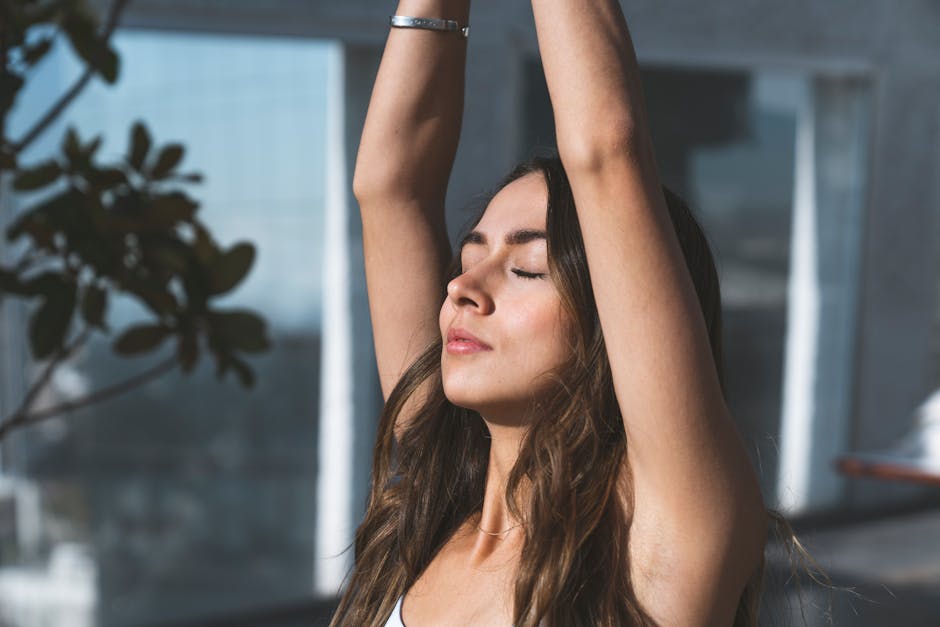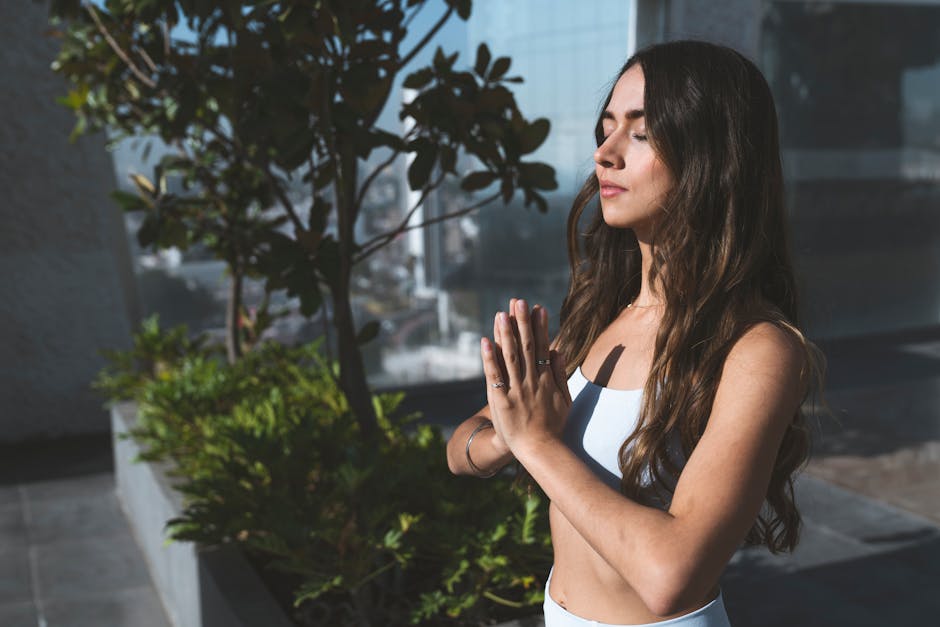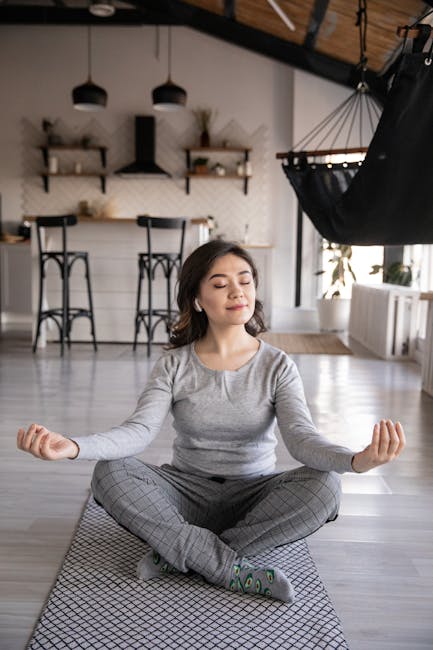Embarking on a journey of meditation can be a transformative experience, especially for beginners. This ancient practice offers a myriad of benefits, from stress reduction to improved focus and beyond. But how does one start building a meditation practice? This comprehensive guide will walk you through the process, from understanding the basics to deepening your practice over time. So, why should you keep reading? Because meditation is a skill that can be learned, and this guide will provide you with the tools and knowledge to start your journey.
Key Takeaways
- Understanding the basics of meditation
- Setting up for success in your meditation practice
- Developing and perfecting your meditation technique
- Overcoming challenges in meditation
- Deepening your meditation practice with advanced techniques and practices
Understanding the Basics of Meditation
Definition and Purpose of Meditation
Clarifying what meditation involves
Meditation is a practice where an individual uses a technique – such as mindfulness, or focusing the mind on a particular object, thought, or activity – to train attention and awareness, and achieve a mentally clear and emotionally calm and stable state.
Exploring the benefits for mental and physical health
Meditation has been scientifically proven to reduce stress, control anxiety, promote emotional health, enhance self-awareness, lengthen attention span, and even improve physical health by reducing blood pressure and improving sleep.
Common Misconceptions
Meditation is not about emptying the mind
Contrary to popular belief, meditation is not about emptying the mind or stopping all thoughts. It’s about becoming aware of your thoughts without getting caught up in them.
It’s not necessary to sit in a specific posture for hours
While some traditional forms of meditation may require specific postures, modern practices are more flexible. You can meditate while sitting, lying down, walking, or in other positions.

Setting Up for Success
Setting an Attainable Goal
Start small: Five minutes, three times a week
When starting a meditation practice, it’s important to set attainable goals. You might start with just five minutes of meditation, three times a week. As you become more comfortable, you can gradually increase the duration and frequency of your sessions.
Gradually increase duration and frequency
As your comfort with meditation grows, so too should the length and frequency of your sessions. This gradual increase will help you build a sustainable practice over time.
Creating a Routine
Find the right time that suits your daily schedule
Finding the right time to meditate can make a big difference in your practice. Some people find that meditating first thing in the morning helps them start their day with a clear mind, while others prefer to meditate at night to help them unwind.
Consistency is key to forming a habit
Just like any other habit, consistency is key when it comes to meditation. Try to meditate at the same time each day to help establish a routine.

Developing Your Meditation Practice
Perfecting Your Technique
Focus on breathing or a mantra
One of the simplest ways to meditate is to focus on your breath or a mantra. This can help you stay present and avoid getting caught up in your thoughts.
Understand different techniques like mindfulness or focused attention
There are many different meditation techniques to explore, from mindfulness to focused attention. Understanding these different techniques can help you find the one that works best for you.
Utilizing Tools and Aids
Try a meditation app or podcast for guidance
If you’re new to meditation, using a meditation app or podcast can provide helpful guidance. These tools can guide you through different techniques and help you stay focused during your sessions.
Consider using props like cushions or mats for comfort
Comfort is key when meditating, so consider using props like cushions or mats to support your body.

Overcoming Challenges
Recognizing and Addressing Common Challenges
Dealing with distractions and restlessness
Distractions and restlessness are common challenges in meditation. If you find your mind wandering, gently bring your focus back to your breath or mantra.
Knowing when a technique isn’t working for you
Not every meditation technique will work for everyone. If a technique isn’t working for you, don’t be afraid to try something else.
Persistence and Adaptation
Keep at it despite challenges
Meditation can be challenging, especially for beginners. But with persistence, you can overcome these challenges and reap the benefits of a regular meditation practice.
Be open to adjusting your practice as needed
As you progress in your meditation journey, be open to adjusting your practice as needed. This might mean trying a new technique, changing your meditation schedule, or even attending a meditation retreat.

Deepening Your Meditation Practice
Advanced Techniques and Practices
Metta Meditation for cultivating compassion
As you become more comfortable with meditation, you might want to explore more advanced techniques. Metta Meditation, for example, is a practice of cultivating compassion.
Guided meditations for specific goals like patience or grief
Guided meditations can be a great tool for addressing specific goals or challenges, like cultivating patience or dealing with grief.
Participating in a Silent Retreat
Benefits of deepening practice in a retreat setting
Participating in a silent retreat can be a powerful way to deepen your meditation practice. These retreats provide a supportive environment for intensive meditation, and can help you take your practice to the next level.
How to prepare for and what to expect from a silent retreat
If you’re considering a silent retreat, it’s important to know what to expect. These retreats typically involve several days of silence, with structured meditation sessions throughout the day.
Building a meditation practice is a journey, not a destination. It’s about finding what works for you and adapting as needed. With patience, persistence, and the right tools, you can build a meditation practice that supports your mental and physical health. So why wait? Start your meditation journey today.
For more insights on meditation, check out these articles on Buddhist meditation, the power of meditation, and tips for incorporating meditation into daily life. You might also find our guide to finding the perfect meditation diary and the connection between Tai Chi and meditation helpful.
For more information on building a meditation practice, you can also refer to these external sources: Reddit, Medium, and Mindful.
Embarking on a Journey Within: FAQ on Building A Meditation Practice For Beginners
What is meditation and how does it benefit me?
Meditation is a practice of focusing your mind on a particular object, thought, or activity to train attention and awareness, and achieve a mentally clear and emotionally calm and stable state. Benefits include reduced stress, enhanced concentration, improved emotional health, and increased self-awareness. It can also aid in reducing anxiety, improving sleep, and promoting a greater sense of peace and well-being.
How long should I meditate as a beginner?
Start with short sessions of 5-10 minutes daily. As you become more comfortable with the practice, gradually increase the duration. Consistency is key, so it’s more beneficial to meditate for a shorter period regularly than to aim for longer sessions sporadically.
Do I need any special equipment to start meditating?
No special equipment is required to begin meditating. All you need is a quiet space where you can sit or lie down comfortably without interruptions. Some people find that cushions, mats, or meditation apps enhance their practice, but these are optional and can be added as you explore what works best for you.
What are the common types of meditation?
Several types of meditation exist, each with its own focus and techniques. Mindfulness meditation involves paying attention to your thoughts as they pass through your mind. Guided meditation uses visualization or imagery with a teacher or guide. Mantra meditation focuses on a repetitive sound to clear the mind. Exploring different types can help you find the one that suits you best.
How do I deal with distractions during meditation?
Distractions are normal and part of the learning process. When you notice your mind wandering, gently redirect your focus back to your chosen object of meditation, such as your breath, a mantra, or a visualization. With practice, you’ll find it easier to maintain focus, but remember, the act of recognizing distractions and returning your focus is a core part of meditation practice.
Can I meditate if I have a busy schedule?
Absolutely. Even short periods of meditation can be beneficial. Consider integrating meditation into your daily routine, such as during a morning ritual, on a lunch break, or before bedtime. Many find that even a few minutes of meditation can help to reduce stress and improve focus throughout the day.
Is it better to meditate in silence or with music?
This is a personal preference. Some people find silence essential for deepening their meditation practice, while others find that background music or nature sounds help to soothe the mind and enhance concentration. Experiment with both to see what helps you achieve a more focused and relaxed state.
How can I track my meditation progress?
Tracking progress can be motivating and rewarding. You might keep a meditation journal, noting your experiences, feelings, and duration of each session. Alternatively, many meditation apps offer tracking features, reminders, and guided sessions to help you stay consistent and observe your journey over time.
What should I do if I don’t feel any different after meditating?
Meditation benefits often come with regular and consistent practice, and they can be subtle at first. It’s important to approach meditation without specific expectations and to be patient with yourself. Over time, you may notice changes in your stress levels, mood, or overall sense of well-being. Remember, the journey is as important as the destination.
Can meditation replace sleep?
While meditation is a restorative practice, it should not be used as a substitute for sleep. Both serve different purposes: sleep is essential for physical recovery and cognitive function, while meditation helps to reduce stress and improve mental well-being. Incorporating both into your routine can enhance your overall health and quality of life.



